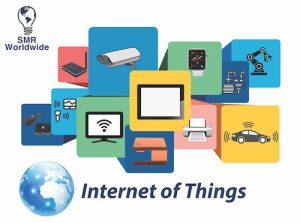Gartner predicts that the Internet of Things (IoT) will grow to 26 billion units in 2020, which is up from 0.9 billion units in 2009. This will create a tidal wave of electronic devices that will need to be properly recycled and erased of data in the coming months and years.
Alex Cummings
Forbes defines the Internet of Things (IoT) as any device with a power switch that connects to the internet including cell phones, lamps, coffee makers, wearable devices, and much more.[1] According to Gartner, IoT growth has gone from 0.9 billion units in 2009 to over 26 billion units by 2020.[2] In comparison, Gartner reports that mobile devices and PCs will grow to roughly 7.3 billion units by 2020.[3]

When businesses and consumers are asked what they consider E-Waste, the typical response you will hear is computers, cell phones, TVs, etc. What most don’t understand is that IoT devices—including HVAC controls, robotics like a Roomba, security systems, consumer electronics, even HVAC air filters for HVAC units—are WiFi-enabled to track their lifespan. Without proper data erasure and recycling processes, unintended consequences can include data breaches for businesses or consumers.
Advancements in Technology
As technological advancements continue to increase, so does the number of items connected to the internet that contain data-bearing devices. Data securityshould be at the forefront of businesses’ minds regarding their IoT devices, especially those with data-bearing components. Robotic items like a Roomba collect data identifying the size of your rooms, floorplan, location of furniture, and overall cleanliness of your business or home. Google manufactures dozens of items including alarm systems, cameras, voice assistants, and much more that collect data. The Google Nest thermostat allows owners to track recent usage of their HVAC system, humidity, and temperature. Even medical implants store data! As with most devices above, many of these items will need to be completely destroyed via shredding to ensure complete data destruction.
Other tools that are emerging in the IoT market include smart speakers and machine learning tools. PWC now has a new patent-pending technology called their Gelocation Platform. The platform allows companies to track exactly where assets are in-house at all times. They also have a biometric technology that can track foot traffic in retail stores. As for the healthcare industry, PWC has a platform that identifies patients with facial recognition to better track waits times.[4]
Smart buildings now have built-in occupancy trackers, which allows the lights to automatically turn off when no one is present in the room and turn on when someone walks into the room. This helps to ensure energy is being used efficiently. These same devices can include temperature controls, which keep the room at a pre-selected temperature when it’s occupied. Large scale HVAC units now boast built-in sensors, which looks for gas leaks and keeps maintenance reports on units and reports those back to a central hub, ensuring the units work at peak performance.
Simply tossing these items into the trash is not acceptable. First and foremost, they hold sensitive data about your business and home. Second, they most an environmental risk if not recycled in a responsible manner. A secure ITAD solutions provider should be at the forefront of your IT department’s mind. Proper data destruction for IoT ensures your business doesn’t have a data breach of sensitive information.
Conclusion
Over the last few years, recognizing the tidal wave of IoT devices that are bound for retirement, SMR has begun working with OEMs to and increase awareness of proper data destruction and disposition. Our hope is for our partners to produce and procure items that are intended for multiple lifecycle use instead of just one. The more we can refurbish or reuse items, the more we save of our Earth’s natural resources.
Alex Cummings creates, implements and executes the global marketing and public relations strategy for SMR Worldwide (formerly Smart Metals Recycling), headquartered in Statesville, NC with four additional locations in the United States. Alex maintains SMR’s website, social media, market research, press releases, e-mail campaigns, partnerships, blogs, and other content. He spent the last 15 years in various client services and marketing roles with companies such as World Racing Group, World of Outlaws, Roush Yates Engines, and SRI Performance before finding his purpose in the ITAD and Electronics Recycling Industry.
SMR Worldwide’s mission is to transform yesterday’s technology into the supply chain of tomorrow. The company partners with the world’s leading manufacturers, highest volume IT distributors, and most privacy-obsessed enterprises to deliver the best turnkey ITAD programs from end-to-end, protecting our client’s brand and reputation while minimizing environmental impacts. In the summer of 2019, SMR was placed on the Inc. 5000 list at #1563 in just its 5th year of operation. For more information, visit www.smr-worldwide.com.
Notes
https://www.forbes.com/sites/jacobmorgan/2014/05/13/simple-explanation-internet-things-that-anyone-can-understand/#6550abfe1d09
https://www.devopsonline.co.uk/iot-installed-base-grow-26-billion-units-2020/
https://www.devopsonline.co.uk/iot-installed-base-grow-26-billion-units-2020/
https://digital.pwc.com/content/pwc-digital/en/products/connected-solutions.html?WT.mc_id=CT3-PL300-DM1-TR1-LS40-ND30-TTA9&eq=CT3-PL300-DM1-CN_ConnectedSolutions-iot-feb-2019-nonbranded
